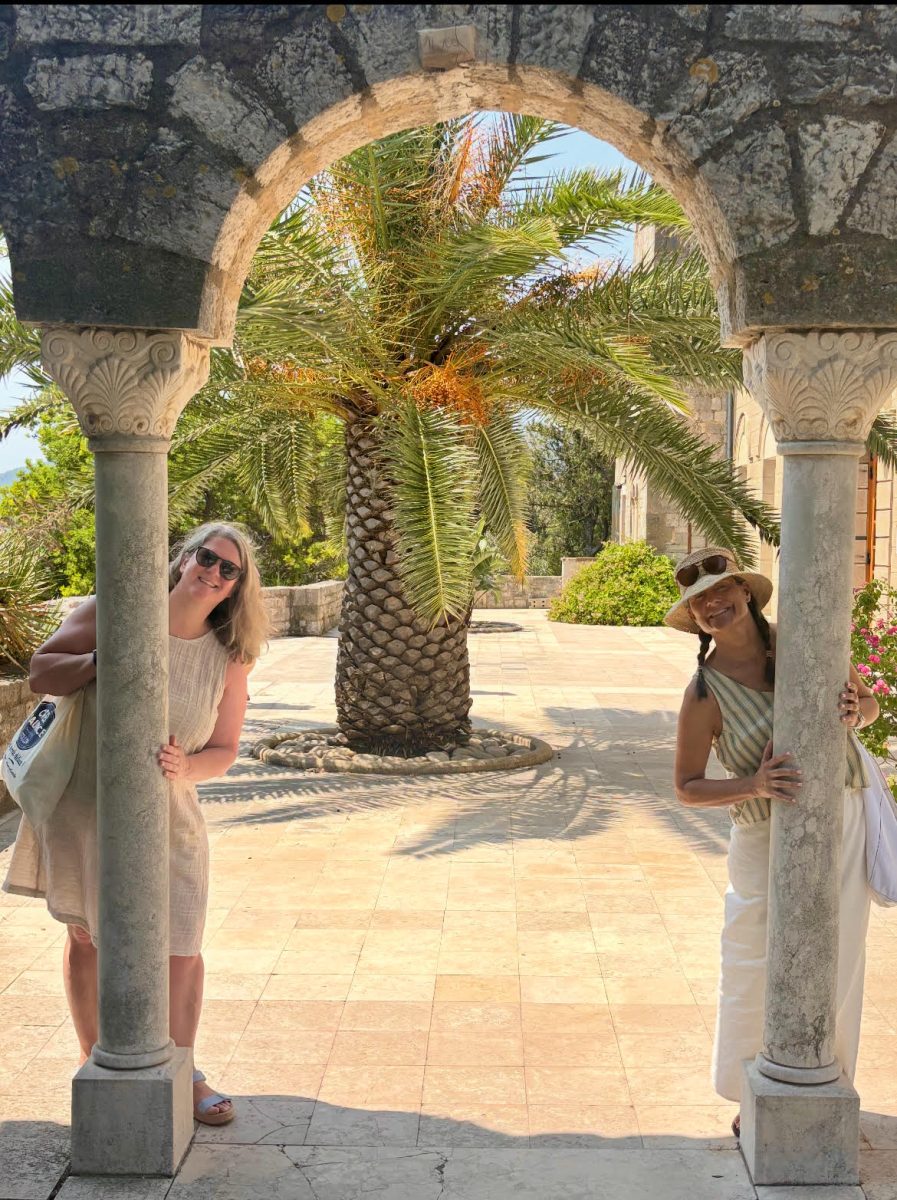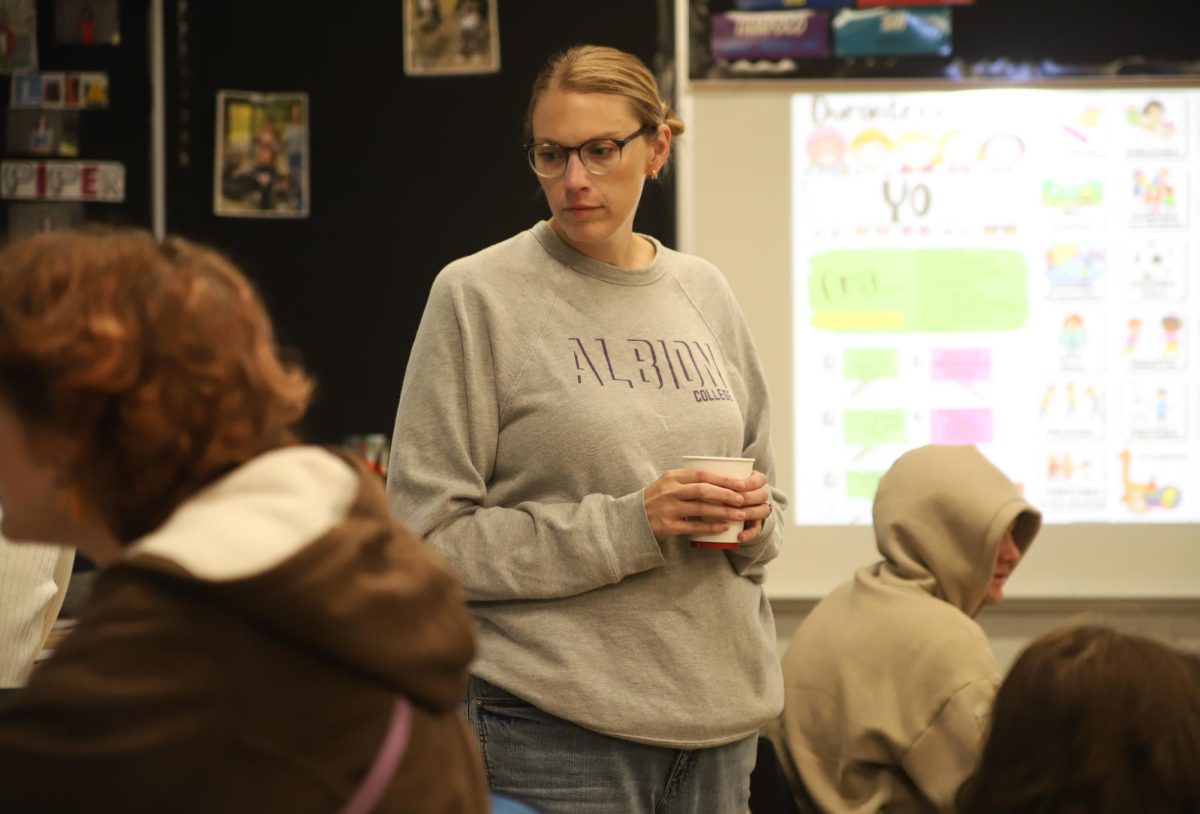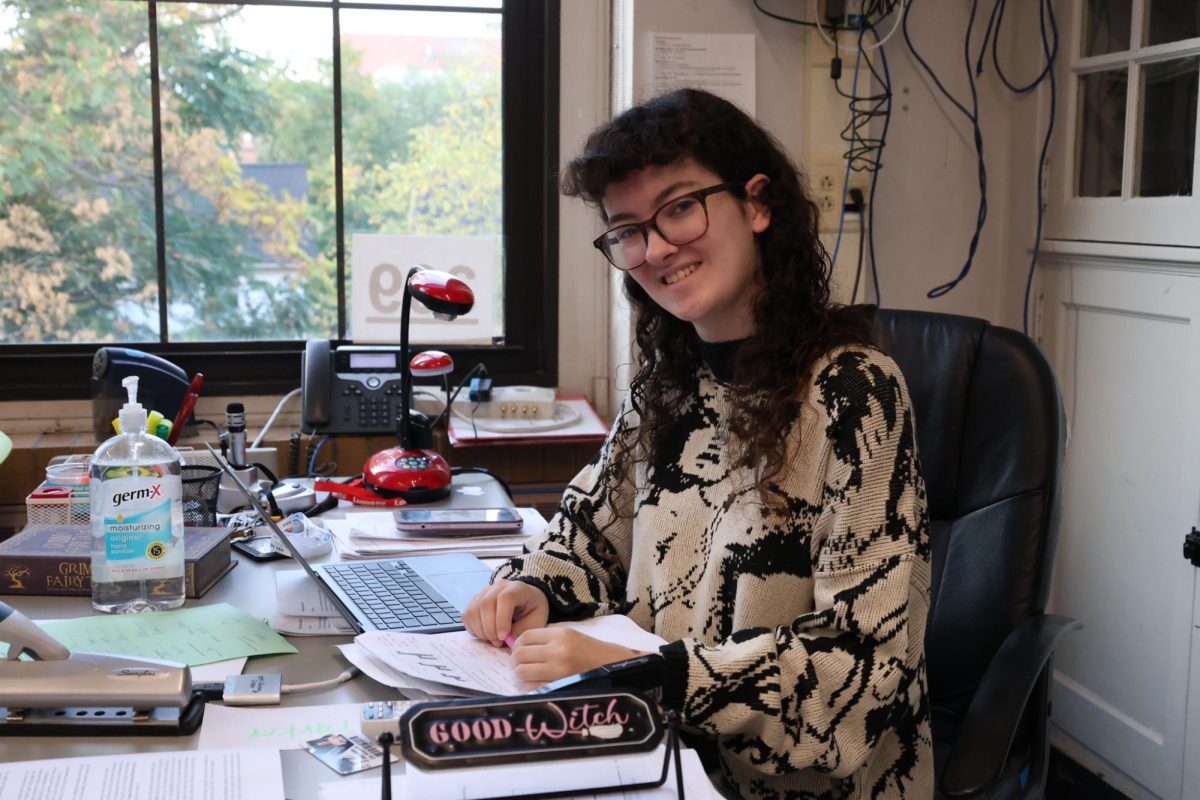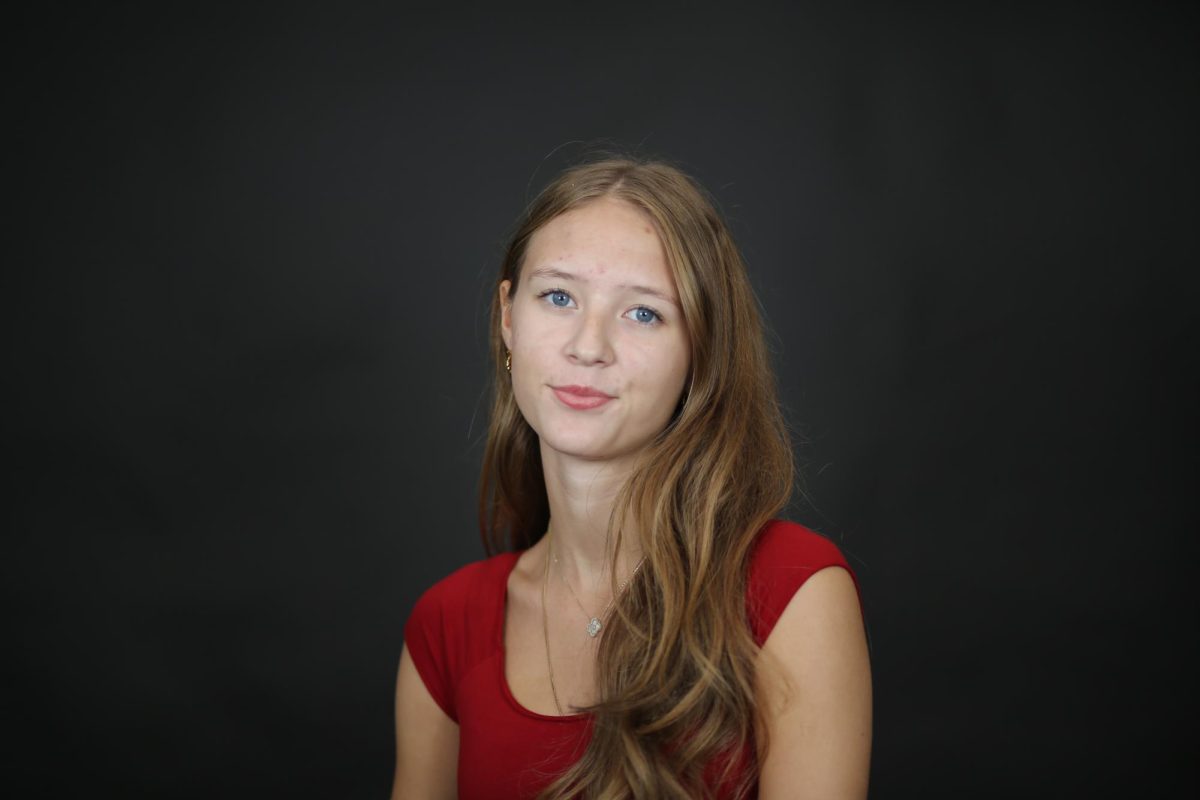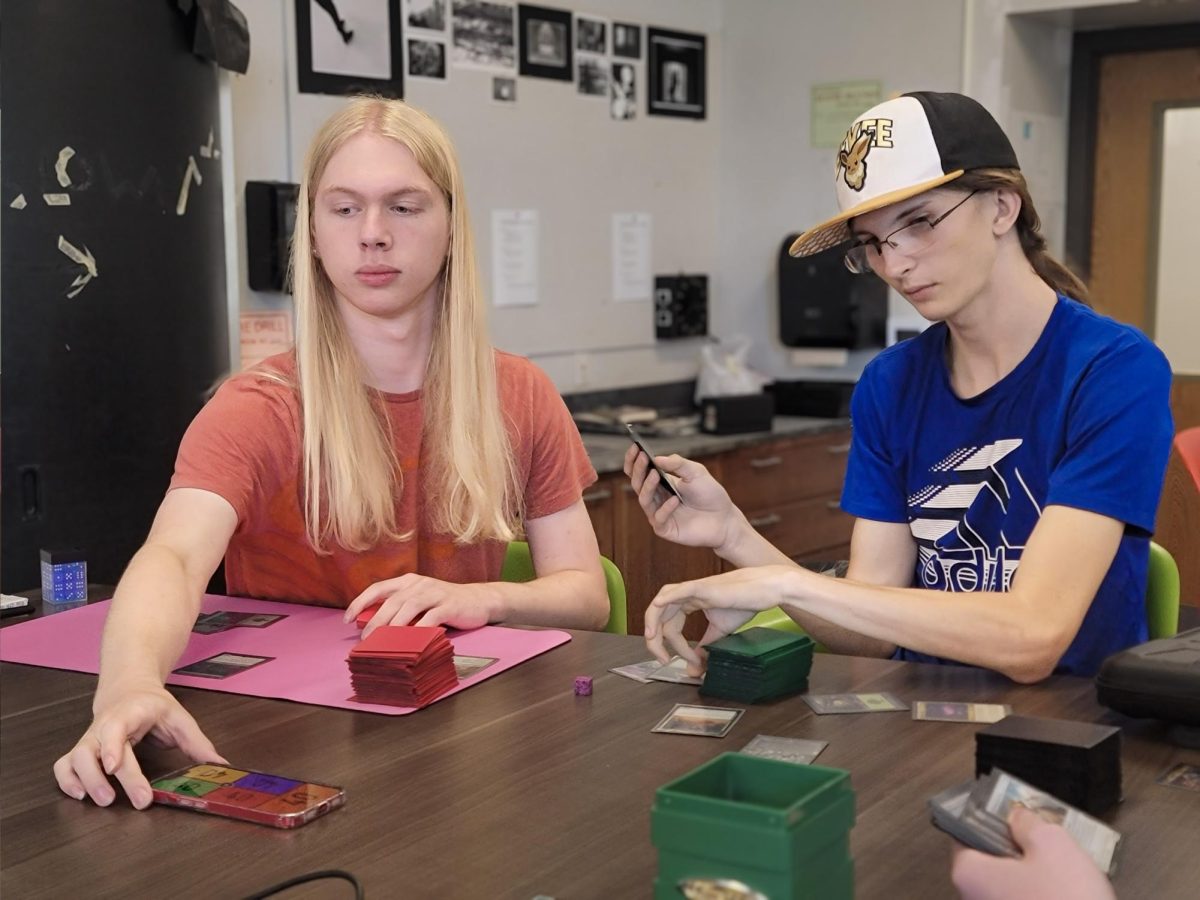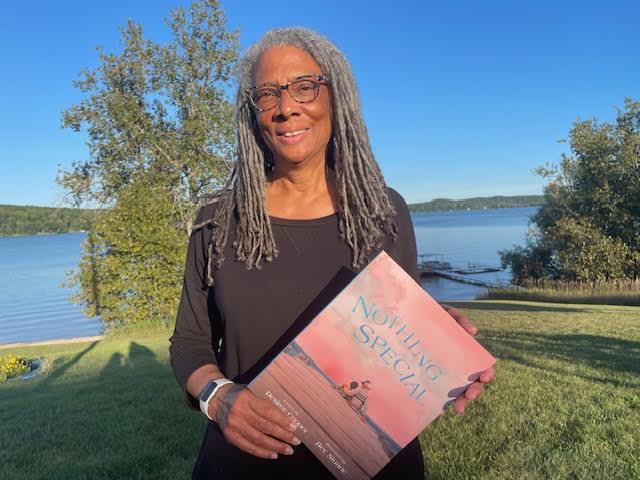Community High School has seen its fair share of student teachers over the years, and each one brings new experiences to the table. John Abela, FOS 3 teacher Liz Stern’s student teacher this year, has a unique style when it comes to learning to be a teacher. He has a mohawk. He lets kids text in class — to answer questions, that is. And he didn’t always know he was going to become a science teacher.
“I think teaching full time has made me realize it’s actually what I want to do. While I might have been skeptical before this semester … choosing what you’re going to do for the rest of your life at 22 is kind of scary,” noted Abela. “I came into teaching not exactly 100% [sure], like 95% sure that’s what I wanted to do, but there’s still that 5% that’s like ‘maybe I’ll want to do something else.’”
“Just being around kids and making lesson plans and seeing everything work out, and then hanging artwork up and all the projects… I don’t know. It just made me realize it’s actually what I want to do,” he said.
Abela is a senior at UM, though he’s not taking classes this semester because he’s student teaching full time. Before this semester, he had to take classes and pre-student teach in order to come to Community, learning the teaching process as he went.
“I’ve taken 2 ½ years of ed-classes, which is basically learning how to be a teacher with all these strategies that sometimes work in the classroom and sometimes don’t. It’s very surprising how much of them don’t actually work,” he said. Afterwards, he did pre-student teaching before coming to Community. “You do three semesters of pre-student teaching. So then you come into a school — I was at Salem and then Scarlett Mitchell — and you go there Tuesdays and Thursdays for the morning, so you’re only there for like 3 hours… So you do that for two semesters, and your third semester you teach full time, which is now. And it’s fun.”
Abela is majoring in integrated science, which is a combination of chemistry, physics, and Earth science.
Once a week, Abela meets with other aspiring teachers for a reflection class, where they talk about how their week went and strategies for the classroom. “It’s just good to hear how other people are doing,” he commented. “Everyone in my cohort kinda goes through the same thing where no one listens all the time or things that you planned don’t go quite as well as you think they will. So it’s good to hear stuff like that. And I’ve been with that group of people for two years now.”
Because he’s student teaching full time, Abela has noticed that teaching is a bit different from how he was told. “Like they say, for example, how to quiet a rambunctious class. There’s like four-five different strategies, and they never work,” he said. “So you just develop different things with each class.”
Teaching has been stressful for Abela, but he notes that being involved in the classroom and being able to edit the units has been fun. He has tried incorporating different teaching styles into the units, like letting kids text in answers to questions to him through their phones. He notes that kids have varying levels of excitement for different units, and tries to alleviate that. “Even if they don’t really like it, they’re doing something different everyday,” he explained.
FOS 3 is currently covering cell membranes and the immune system, but Abela wishes that he could’ve also been here for the earlier units. “My favorite area in college was organic chemistry. So Liz taught that before I got here and I was kind of upset, because I was really interested in that.”
Community has been a unique teaching experience for Abela, who went to an all boys high school, U of D, in Detroit. “It’s definitely more laid back than my other schools. I think that first name basis makes it a little bit easier to have a good relationship with kids.”
“This experience has changed my mind on what I actually want to do, because before I wanted to go back to my old high school,” said Abela. “And I really liked my experiences there, I really liked my teachers there, and I wanted to go back there and teach. But after going through my two semesters and this semester, I don’t think U of D is quite the right fit, because it’s like the same thing I did in high school.”
Abela is open to teaching at any sort of high school now. He does note, however, that he doesn’t want to teach middle school, because high schoolers can do more complex and interesting experiments.
“The kids at each school make each school unique, and I think it changes from year to year,” he said.
He knows it’ll be hard to get a job in this rough economy, especially around here. Positions are limited and have several applicants. “From what I’ve heard from most of my mentors, it’s really, really hard to get a job in Ann Arbor. And then, moving out further away from Ann Arbor and more towards Detroit, same kind of thing,” he said. “I applied to a lot of places here. My girlfriend is in Minnesota doing law school, so I applied to some schools near her, and basically the first one I get a job at is where I’m going.”
The transition, he knows, won’t be easy. “I’ve heard… that your first two years are probably your hardest. Because, I mean, you’ve had a year and a half of training or teaching but, there’s always someone like a mentor, like I have Liz. So any time I have a problem, I can go to Liz. But next year I’ll be off on my own.” Nevertheless, Abela is enthusiastic.
“Words of wisdom, not student teaching-related is like: do something you want to do in life. Because I didn’t come into college going into education, I wanted to be in pre-med. You know, make money, all that good stuff. And then I had to do a little bit of soul searching, and figure out what I actually wanted to do.”



